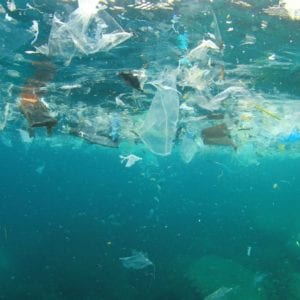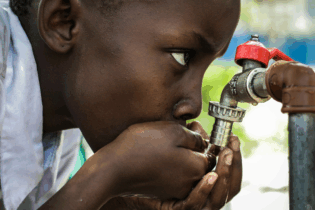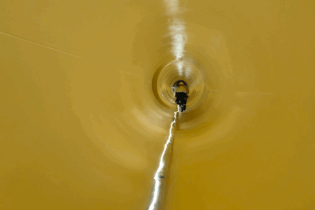Why care?
At the Conference, Dr Earle shared: “When people ask: Why should I care about the ocean? I answer, because the ocean is the cornerstone of earth’s life support system. It shapes climate and weather. It holds most of life on earth. It’s the blue heart of the planet – we should take care of our heart. It’s what makes life possible for us. We still have a really good chance to make things better than they are. They won’t get better unless we take action and inspire others to do the same. No one is without power. Everybody has the capacity to do something. There is plenty of reason for hope. This is the best time ever for change.” Responsible consumption “We fully agree with Dr Earle and hope to change mind sets and behaviours around recycling by creating an understanding of the value of used packaging in South Africa. We believe that through this, we can impact positively on responsible consumer behaviour to prevent land-based littering, and in this way help to save our seas,” concludes Naudé. * https://www.africanwastenetwork.org.za/about/why
Considering the millions of tonnes of plastic and other discarded material that go from the land into the sea every year, it’s no wonder that there is no place in the ocean that is free of it. “We need to respect the oceans and take care of them as if our lives depended on it, because they do.”
This is according to world-renowned oceanographer and explorer, Dr Sylvia Earle who was brought to South Africa by polyolefin packaging industry body Polyco to deliver the keynote address at the recent inaugural African Marine Waste Conference. Polyco is a non-profit company.
Marine pollution on Africa’s coastlines
Polyco CEO, Mandy Naudé, says: “The Conference, and Dr Earle’s presence there, were critical given that Africa is the world’s second most polluted continent on the planet* and that waste accumulation is accelerating due to Africa’s rapidly rising population and urbanisation rates. The UN predicts that the continent’s population will double to 2.4 billion by 2050, with 60% living in urban coastal areas. The accumulation of waste on land, coupled with poorly managed landfill sites, has led to increasing amounts of leakage into rivers, estuaries and seas, with major impacts on marine life, the environment and climate change, not to mention human health. With Polyco being committed to reducing the amount of polyolefin waste going to landfill and increasing the recycling rate of polyolefin plastics, we felt it was crucial to have Dr Earle at the Conference to share her expertise, spanning almost 60 years, on tackling the challenges of waste in the world’s waters and provide input on a pan-African strategy for dealing with marine waste.”
“In South Africa, only 177 000 out of 540,000 tonnes of polyolefin plastic waste were recycled last year. As the majority of our landfills are close to capacity and only 5% of the population are actively recycling, the country and its surrounding oceans are in crisis,” adds Naudé.






